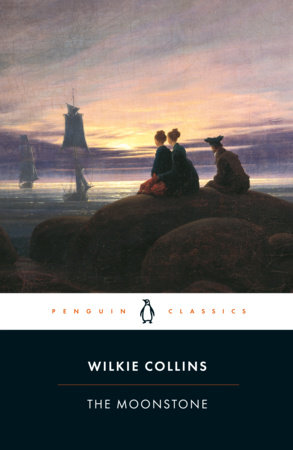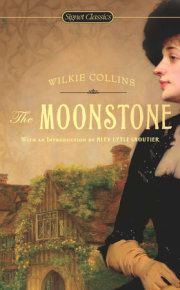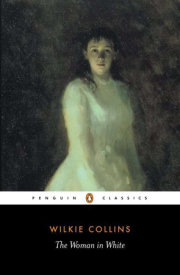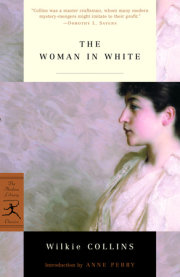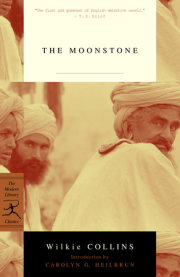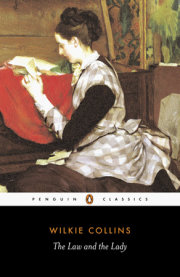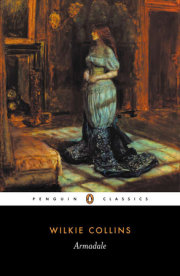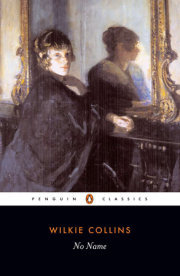Part Three of the Prologue
The storming of Seringapatam (1799)
Extracted from a family paper III So, as told in our camp, ran the fanciful story of the Moonstone. It made no serious impression on any of us except my cousin--whose love of the marvellous induced him to believe it. On the night before the assault on Seringapatam, he was absurdly angry with me, and with others, for treating the whole thing as a fable. A foolish wrangle followed; and Herncastle's unlucky temper got the better of him. He declared, in his boastful way, that we should see the Diamond on his finger, if the English army took Seringapatam. The sally was saluted by a roar of laughter, and there, as we all thought that night, the thing ended.
Let me now take you on to the day of the assault.
My cousin and I were separated at the outset. I never saw him when we forded the river; when we planted the English flag in the first breach; when we crossed the ditch beyond; and, fighting every inch of our way, entered the town. It was only at dusk, when the place was ours, and after General Baird himself had found the dead body of Tippoo under a heap of the slain, that Herncastle and I met.
We were each attached to a party sent out by the general's orders to prevent the plunder and confusion which followed our conquest. The camp-followers committed deplorable excesses; and, worse still, the soldiers found their way, by an unguarded door, into the treasury of the Palace, and loaded themselves with gold and jewels. It was in the court outside the treasury that my cousin and I met, to enforce the laws of discipline on our own soldiers. Herncastle's fiery temper had been, as I could plainly see, exasperated to a kind of frenzy by the terrible slaughter through which we had passed. He was very unfit, in my opinion, to perform the duty that had been entrusted to him.
There was riot and confusion enough in the treasury, but no violence that I saw. The men (if I may use such an expression) disgraced themselves good-humouredly. All sorts of rough jests and catchwords were bandied about among them; and the story of the Diamond turned up again unexpectedly, in the form of a mischievous joke. `Who's got the Moonstone?' was the rallying cry which perpetually caused the plundering, as soon as it was stopped in one place, to break out in another. While I was still vainly trying to establish order, I heard a frightful yelling on the other side of the courtyard, and at once ran towards the cries, in dread of finding some new outbreak of the pillage in that direction.
I got to an open door, and saw the bodies of two Indians (by their dress, as I guessed, officers of the palace) lying across the entrance, dead.
A cry inside hurried me into a room, which appeared to serve as an armoury. A third Indian, mortally wounded, was sinking at the feet of a man whose back was towards me. The man turned at the instant when I came in, and I saw John Herncastle, with a torch in one hand, and a dagger dripping with blood in the other. A stone, set like a pommel, in the end of the dagger's handle, flashed in the torchlight, as he turned on me, like a gleam of fire. The dying Indian sank to his knees, pointed to the dagger in Herncastle's hand, and said, in his native language:--`The Moonstone will have its vengeance yet on you and yours!' He spoke those words, and fell dead on the floor.
Before I could stir in the matter, the men who had followed me across the courtyard crowded in. My cousin rushed to meet them, like a madman. `Clear the room!' he shouted to me, `and set a guard on the door!' The men fell back as he threw himself on them with his torch and his dagger. I put two sentinels of my own company, on whom I could rely, to keep the door. Through the remainder of the night, I saw no more of my cousin. Early in the morning, the plunder still going on, General Baird announced publicly by beat of drum, that any thief detected in the fact, be he whom he might, should be hung. The provost-marshal was in attendance, to prove that the General was in earnest; and in the throng that followed the proclamation, Herncastle and I met again.
He held out his hand, as usual, and said, `Good morning.'
I waited before I gave him my hand in return.
`Tell me first,' I said, `how the Indian in the armoury met his death, and what those last words meant, when he pointed to the dagger in your hand.'
'The Indian met his death, as I suppose, by a mortal wound,' said Herncastle. `What his last words meant I know no more than you do.'
I looked at him narrowly. His frenzy of the previous day had all calmed down. I determined to give him another chance.
'Is that all you have to tell me?' I asked. He answered, `That is all.'
I turned my back on him; and we have not spoken since.
Copyright © 2003 by Wilkie Collins. All rights reserved. No part of this excerpt may be reproduced or reprinted without permission in writing from the publisher.

